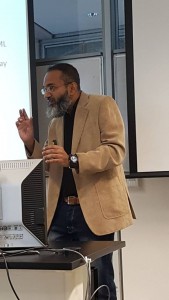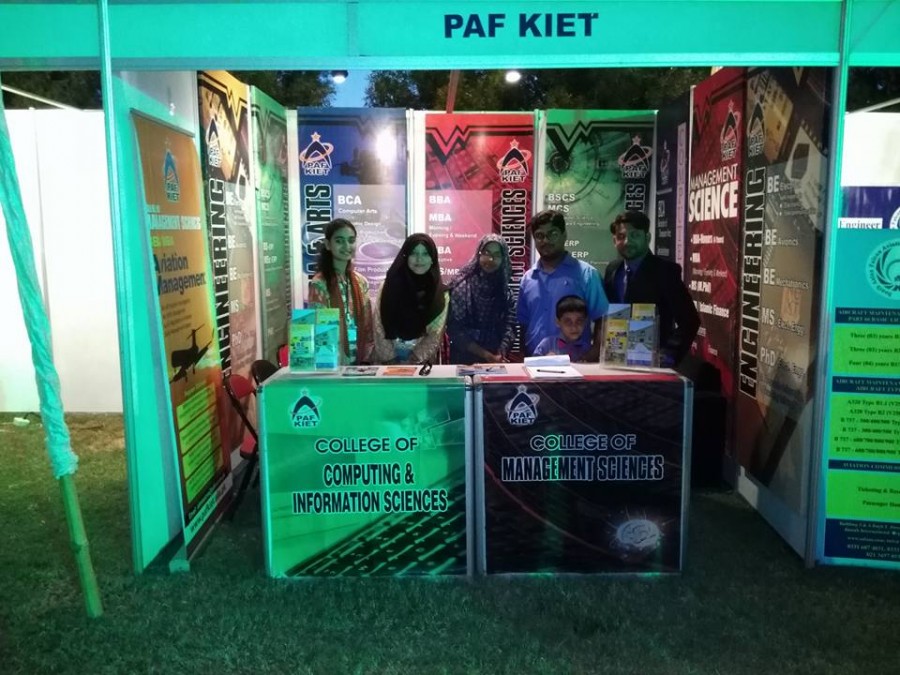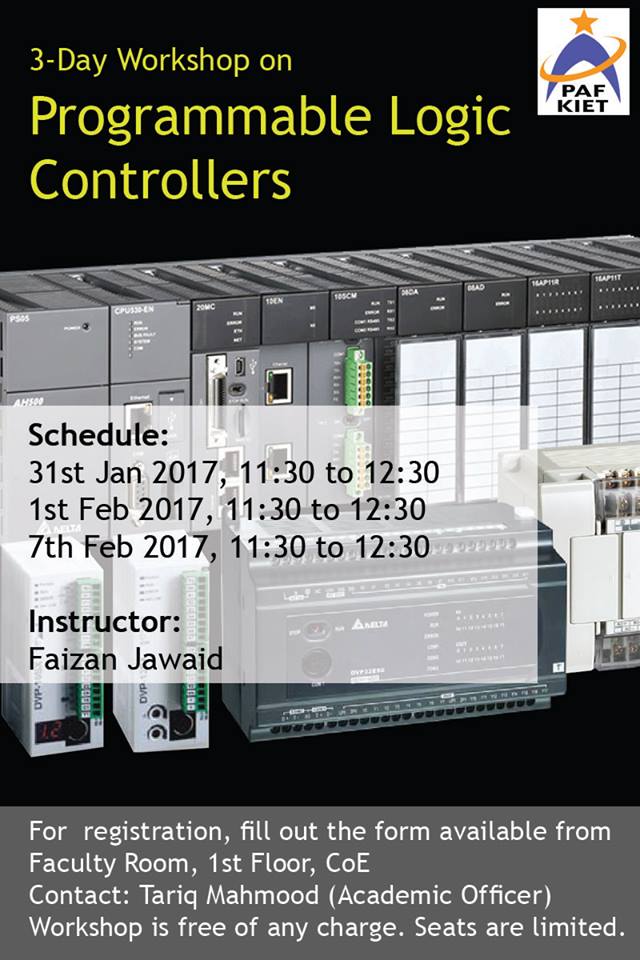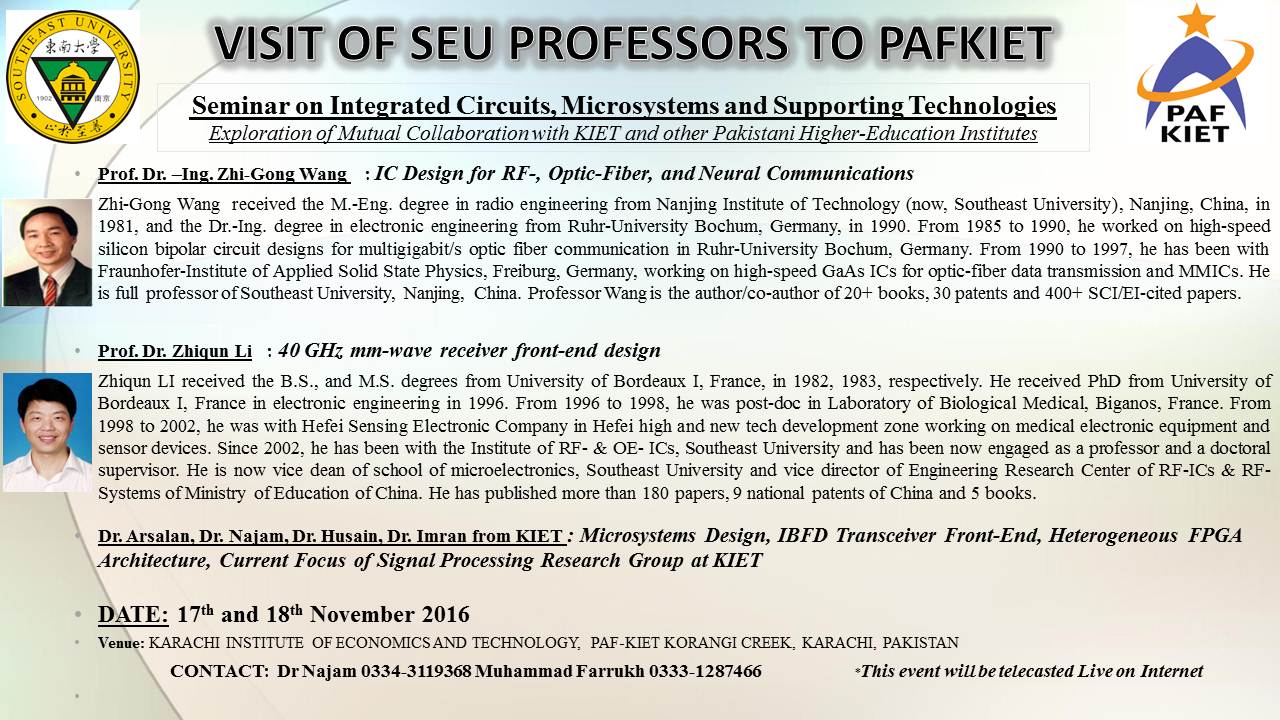Talk at CISIR-UTP
Talk on “Localized Feature Extraction for Biomedical and Biometric Applications”
Dr. Imran Naseem invited to give a talk at CISIR-UTP Malaysia, March 2017:
Dr. Imran Naseem was invited to give a talk at Center for Intelligent Signal and Imaging Research (CISIR), at University of Technology Petronas (UTP) Malaysia on 14th March, 2017. Title of the talk was “Localized Feature Extraction for Biomedical and Biometric Applications”. The talk was attended by faculty members and graduate students. Abstract of the talk is given below.
Abstract:
In the context of pattern classification and machine learning, localized features have shown to be more robust compared to their holistic counterparts. It is therefore intriguing to extend this concept for challenging problems of inter-disciplinary nature. Recently machine learning approaches have shown great success in solving classification problems in biological sciences. One such problem is the prediction of a particular type of protein called Anti Freeze Proteins (AFPs). In extreme cold weather, living organisms produce AFPs to counter the otherwise lethal intracellular formation of ice. Structures and sequences of various AFPs exhibit a high degree of heterogeneity, consequently the prediction of the AFPs is considered to be a challenging task. In this talk, I will discuss a novel approach to handle this arduous manifold learning task using the notion of localized processing. In particular an AFP sequence is segmented into two sub-segments each of which is analyzed for amino acid and di-peptide compositions. We propose to use only the most significant features using the concept of information gain (IG) followed by a random forest classification approach. The proposed RAFP-Pred achieved an excellent performance on a number of standard datasets. We report a high Youden’s index (sensitivity+specificity-1) value of 0.75 on the standard independent test dataset outperforming the AFP-PseAAC, AFP PSSM, AFP-Pred and iAFP by a margin of 0.04, 0.06, 0.08 and 0.70 respectively. The verification rate on the UniProKB dataset is found to be 83.19% which is substantially superior to the 57.18% reported for the iAFP method. A new dataset consisting of 3572 sequences annotated as “antifreeze”, obtained from the National Center for Biotechnology Information (NCBI) repository, is also reported in this work. The proposed RAFP-Pred achieved a high verification accuracy of 88.63% on this new dataset.
Biography:
Imran Naseem received his B.E. (Electrical Engineering) degree in 2002 from the NED University of Engineering and Technology, Pakistan. He did his M.S. (Electrical Engineering) in 2005 from the King Fahd University of Petroleum and Minerals (KFUPM), KSA and Ph.D in 2010 from The University of Western Australia. He did his post doctorate at the Institute for Multi-sensor Processing and Content Analysis, Curtin University of Technology, Australia. He joined the College of Engineering, KIET, Pakistan in 2011 where he is currently an Associate Professor. He is also an Adjunct Research Fellow at the School of Electrical, Electronic and Computer Engineering at The University of Western Australia. His research interests include pattern classification and machine learning with a special emphasis on biometrics and bioinformatics applications. He has authored several publications in top journals and conferences including IEEE Transactions on Pattern Analysis and Machine Intelligence, Pattern Recognition, IEEE Transactions on Computational Biology and Bioinformatics, IEEE International Conference on Image Processing etc. His benchmark work on face recognition has received more than 500 citations. He is also a reviewer of IEEE Transactions on Pattern Analysis and Machine Intelligence, IEEE Transactions on Image Processing and IEEE Signal Processing Letters.








